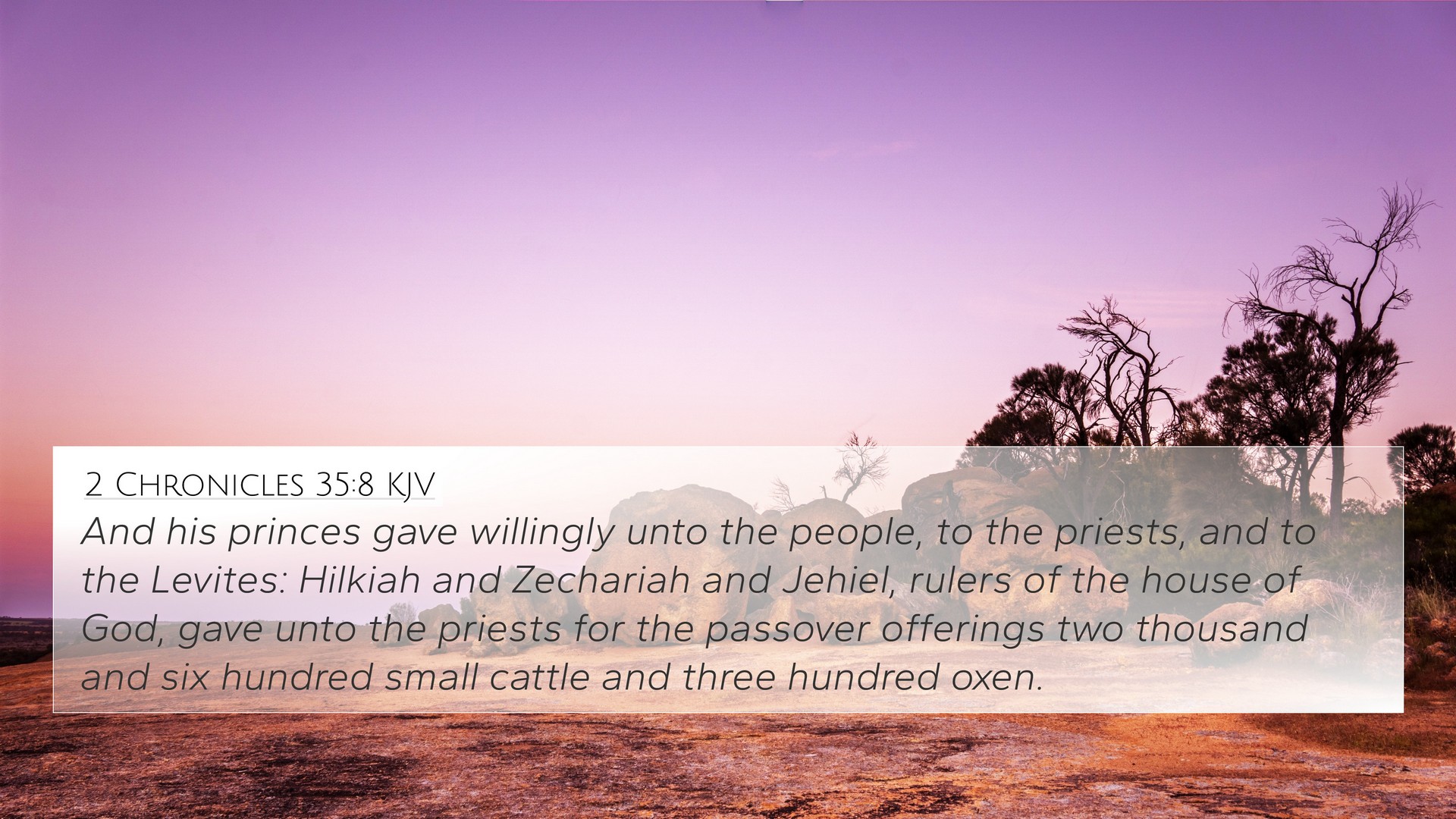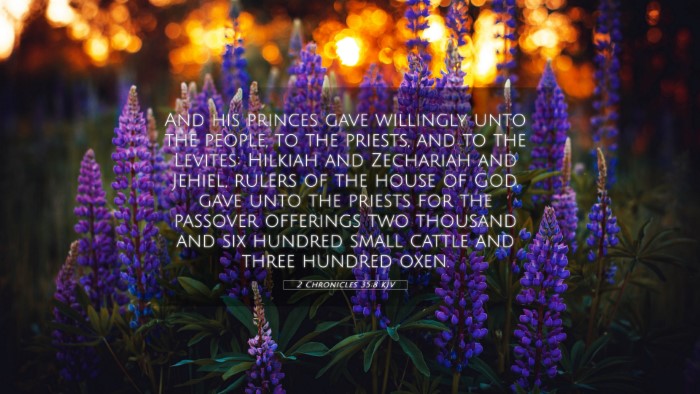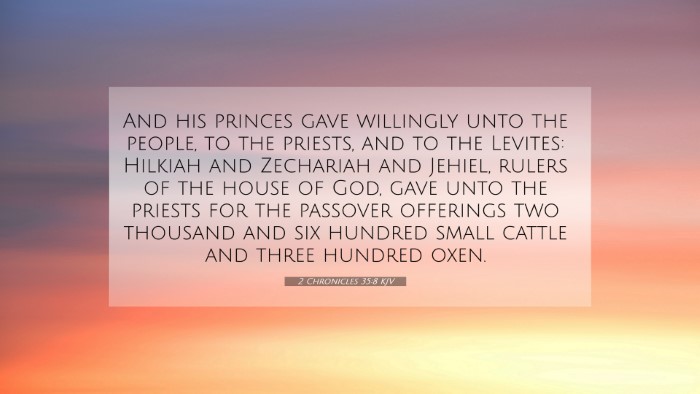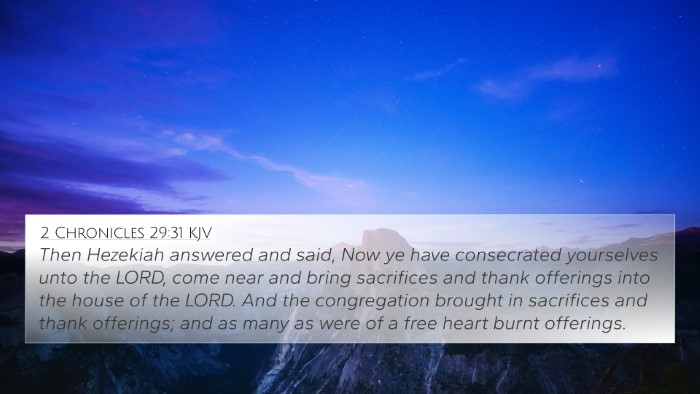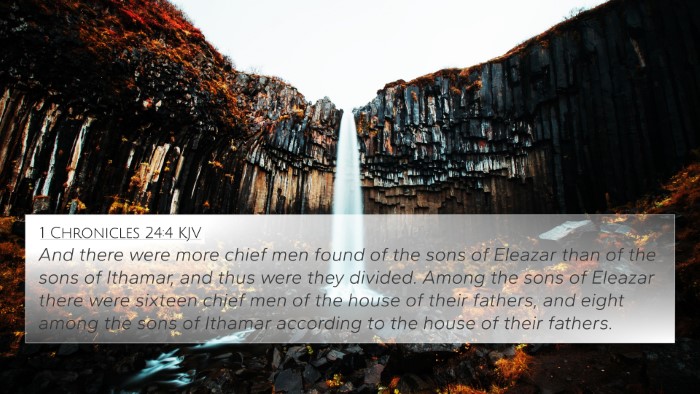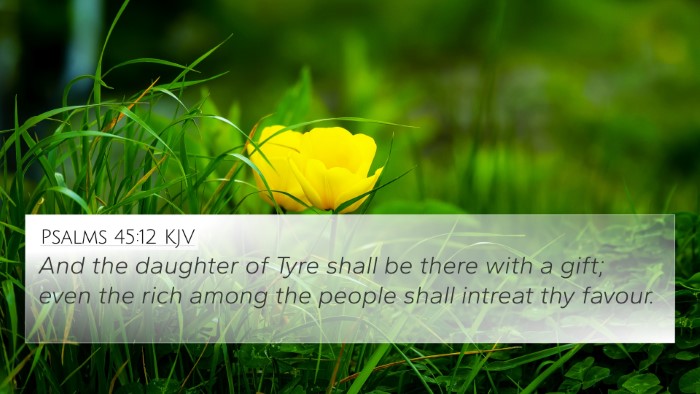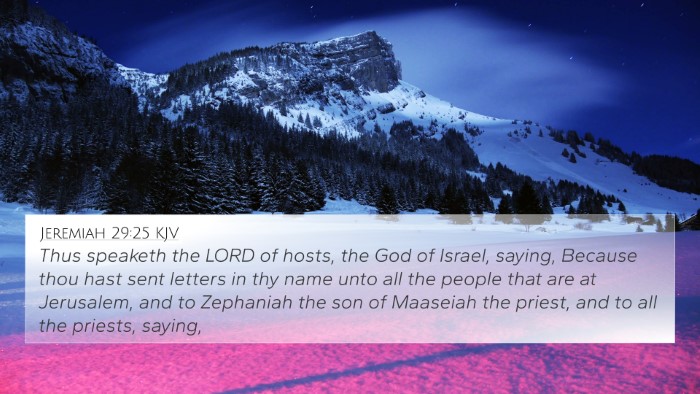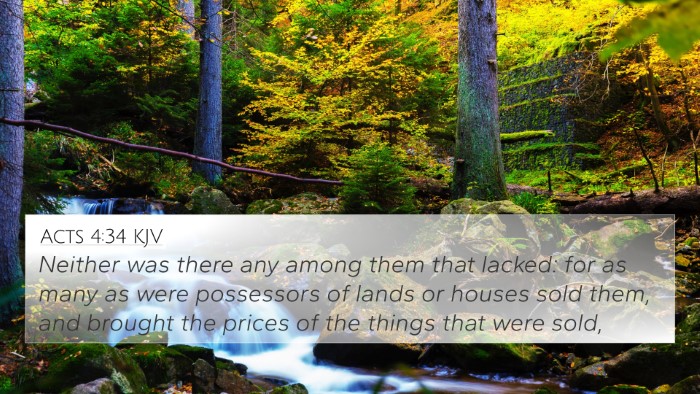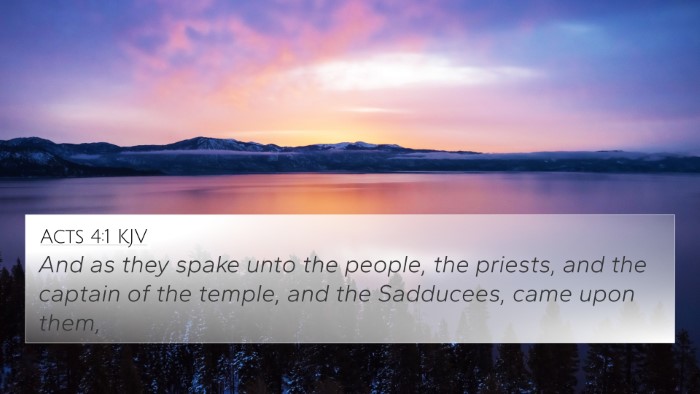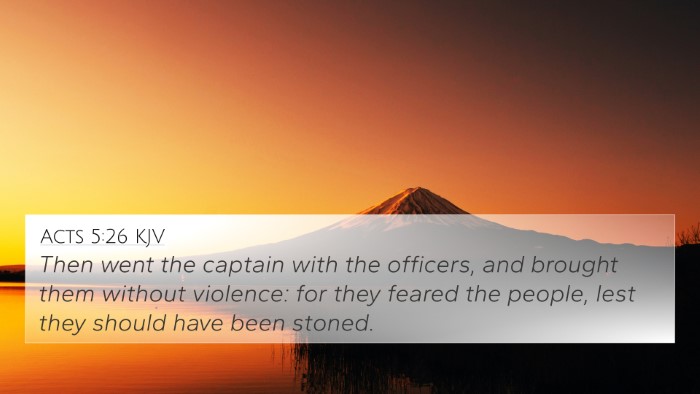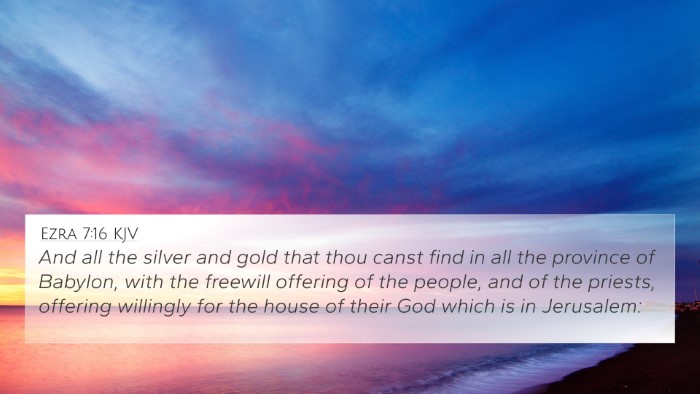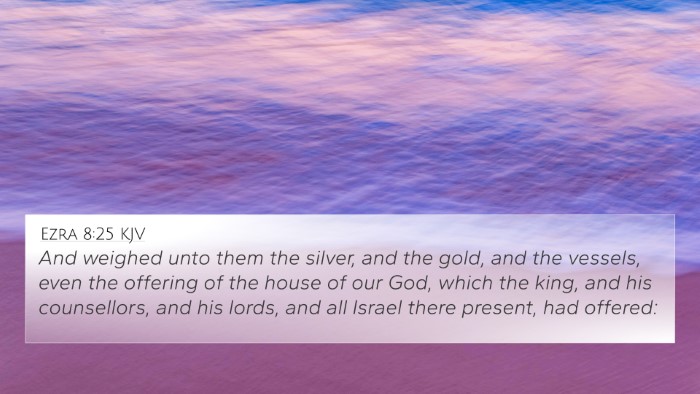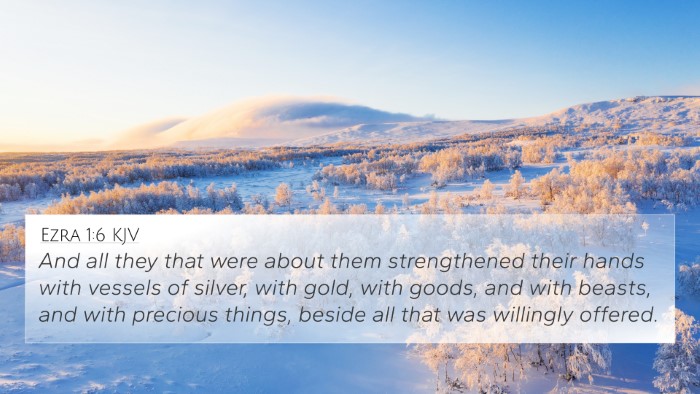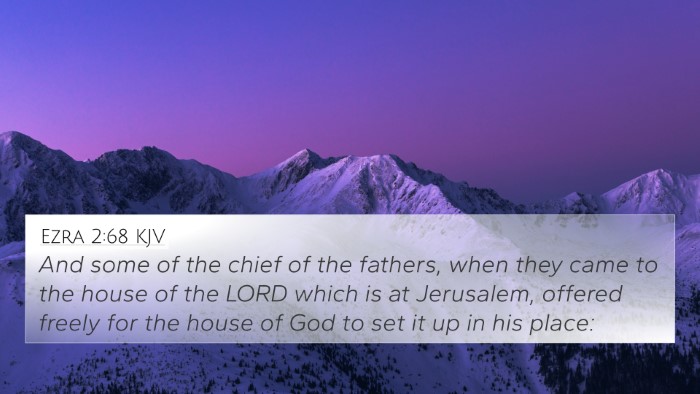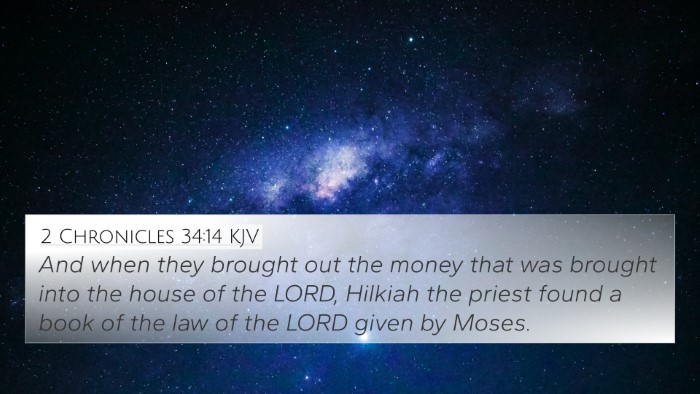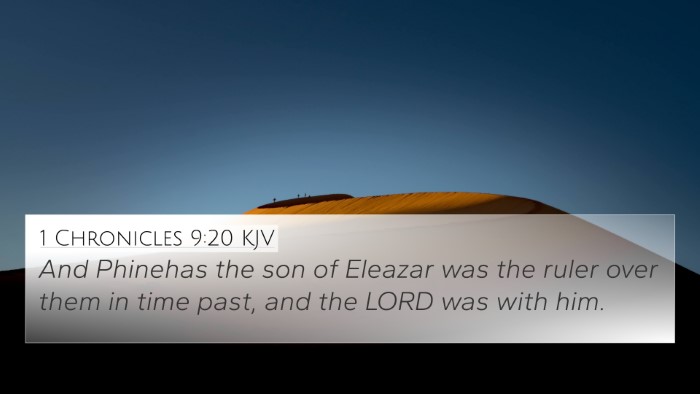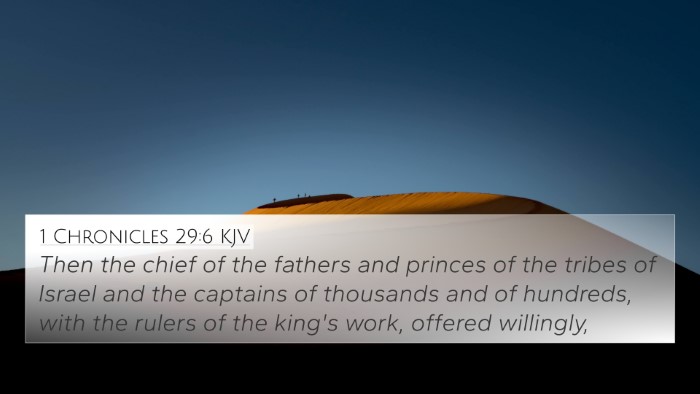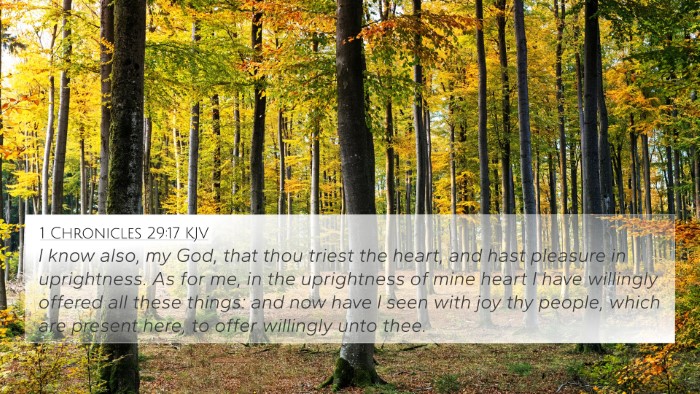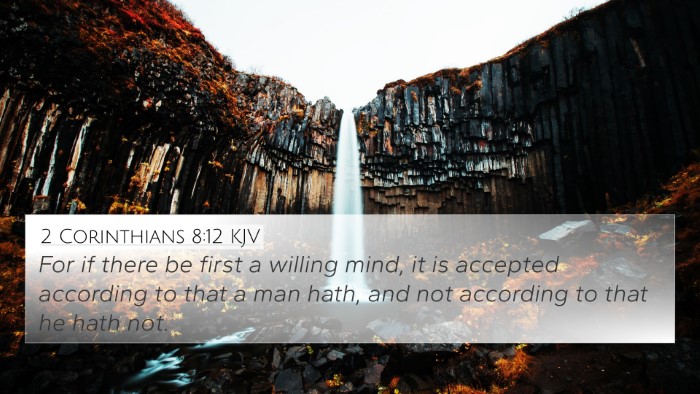Understanding 2 Chronicles 35:8
2 Chronicles 35:8 reads: "And his princes gave willingly unto the people, to the priests, and to the Levites: Hilkiah and his brethren gave unto the priests a thousand sheep, and seven hundred oxen, and for the Levites five thousand sheep, and five hundred oxen."
Summary of 2 Chronicles 35:8
This verse illustrates a significant moment in the reign of King Josiah, where the leaders of Judah generously donated substantial offerings alongside the king's efforts to restore proper worship in the temple. This act of generosity demonstrates a communal commitment to religious observance and supports the overall reform initiated by Josiah. Below, we explore the meanings drawn from various public domain commentaries on this verse.
Interpretation from Commentaries
Matthew Henry's Commentary
Matthew Henry emphasizes the importance of the voluntary contributions made by the princes and the willing spirit of the people. He argues that the donations reflect not merely an obligation but a heartfelt response to God’s call for reform and revival of true worship. The generous offerings underscored a collective commitment to restoring the temple and supporting the Levites and priests, who played a vital role in temple services.
Albert Barnes' Notes
Albert Barnes elaborates on the details of the offerings, noting the significant quantities of livestock presented. This substantial contribution is indicative of the wealth and resources available to the community, which they willingly dedicated towards worship. Barnes points out that this verse highlights the principle of communal support for spiritual leaders and the maintenance of sacred spaces.
Adam Clarke's Commentary
Adam Clarke provides insight into the underlying motives of the leaders' gifts, emphasizing the spiritual awakening that Josiah's reforms ignited among the Israelites. Their willingness to give reflects a heart turned towards God, eager to be part of a revival. Clarke emphasizes the necessity of such support for the clergy and the Levites, as their role is integral to the spiritual health and growth of the community.
Key Themes and Cross-References
The themes in 2 Chronicles 35:8 connect deeply to broader biblical principles regarding generosity, worship, and community support of spiritual leaders. Below are several important cross-references that shed light on similar themes:
- Exodus 35:5 - Refers to the voluntary offerings made for the construction of the Tabernacle.
- 2 Chronicles 32:12 - Highlights the Levites' role in temple worship.
- 2 Kings 23:21-23 - Discusses the celebration of Passover under King Josiah with similar elements of sacrifice.
- Deuteronomy 16:16-17 - Instructions about bringing offerings to the Lord.
- Malachi 3:10 - A call to bring the full tithe into the storehouse.
- Romans 12:1 - The idea of offering oneself as a living sacrifice in worship.
- Philippians 4:18 - Paul expresses gratitude for the monetary gifts given to him, likening them to a sweet-smelling sacrifice.
Applications and Reflections
The actions described in 2 Chronicles 35:8 encourage believers today to consider their roles in supporting their spiritual communities. The willingness to give, whether through resources or time, reflects a vibrant faith and commitment to worship. This verse also invites individuals to explore their motivations behind giving and to engage in acts that glorify God and uplift others.
Exploring Cross-Referencing Techniques
For those interested in deepening their understanding of biblical connections, using tools for Bible cross-referencing can be invaluable. Resources like a Bible concordance or a cross-reference Bible study guide can help identify links between scriptures that share thematic elements. Understanding these connections allows for a richer exploration of God's word and aids in sermon preparation and personal study.
Conclusion
In conclusion, 2 Chronicles 35:8 serves as a powerful example of communal devotion to God, underscoring themes of generosity, support for spiritual leaders, and participation in worship. By examining this verse through the insights of public domain commentaries, believers can gain a deeper appreciation of the relational dynamics within the community of faith. Embracing the principles outlined here encourages deeper spiritual engagement and enriches the worship experience.
